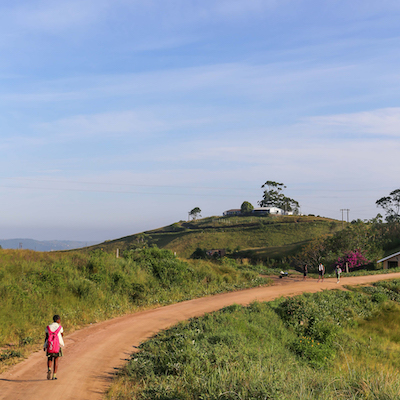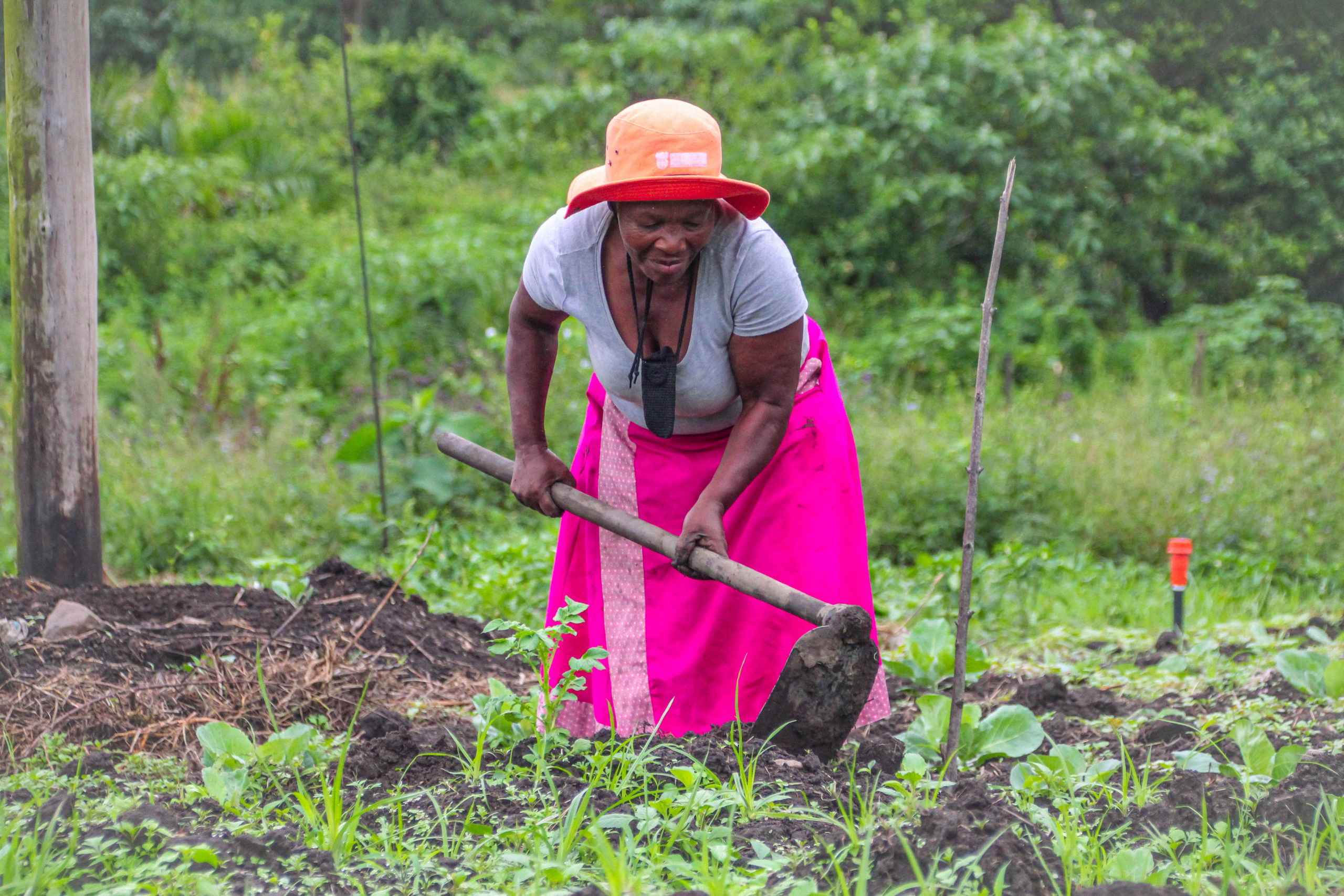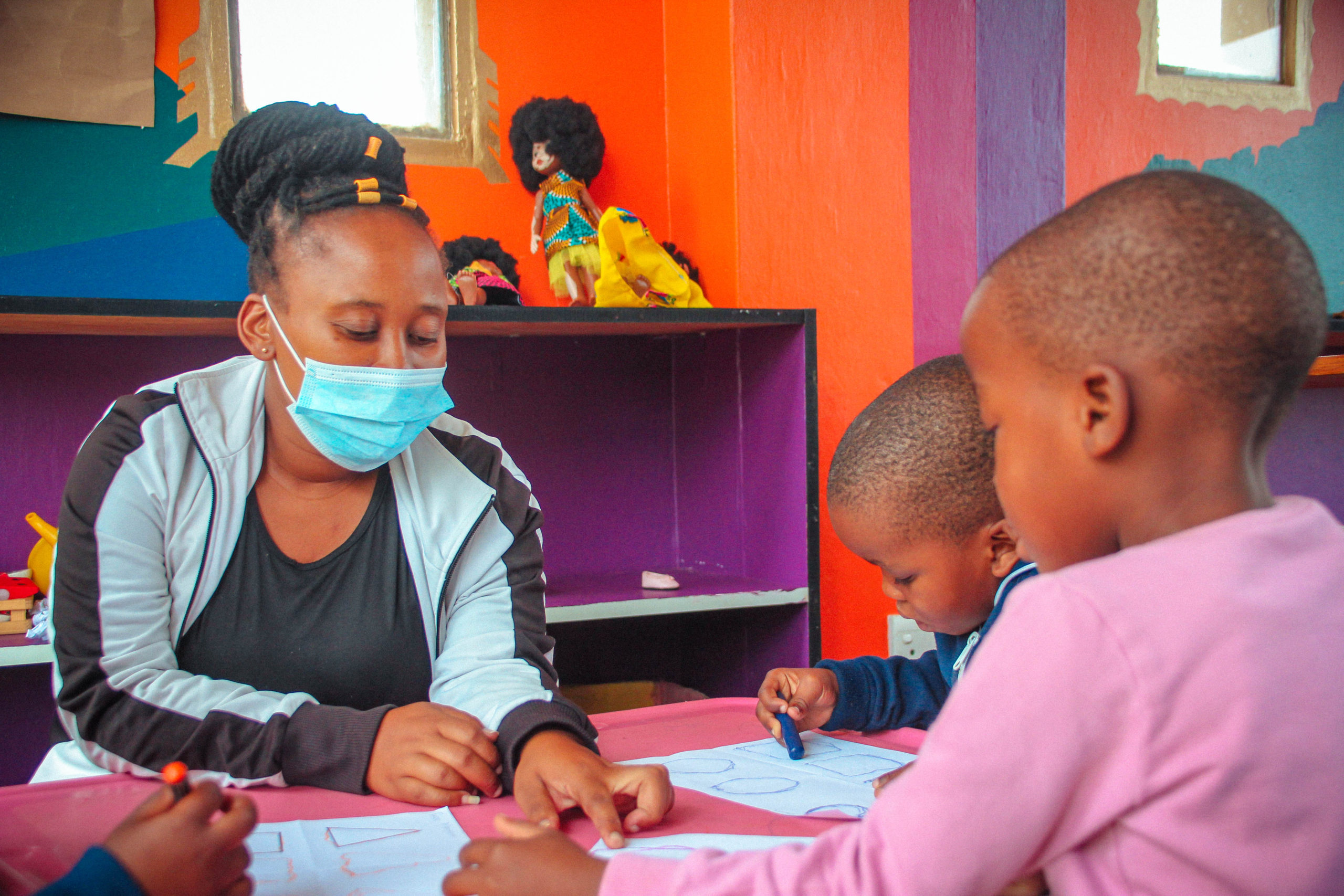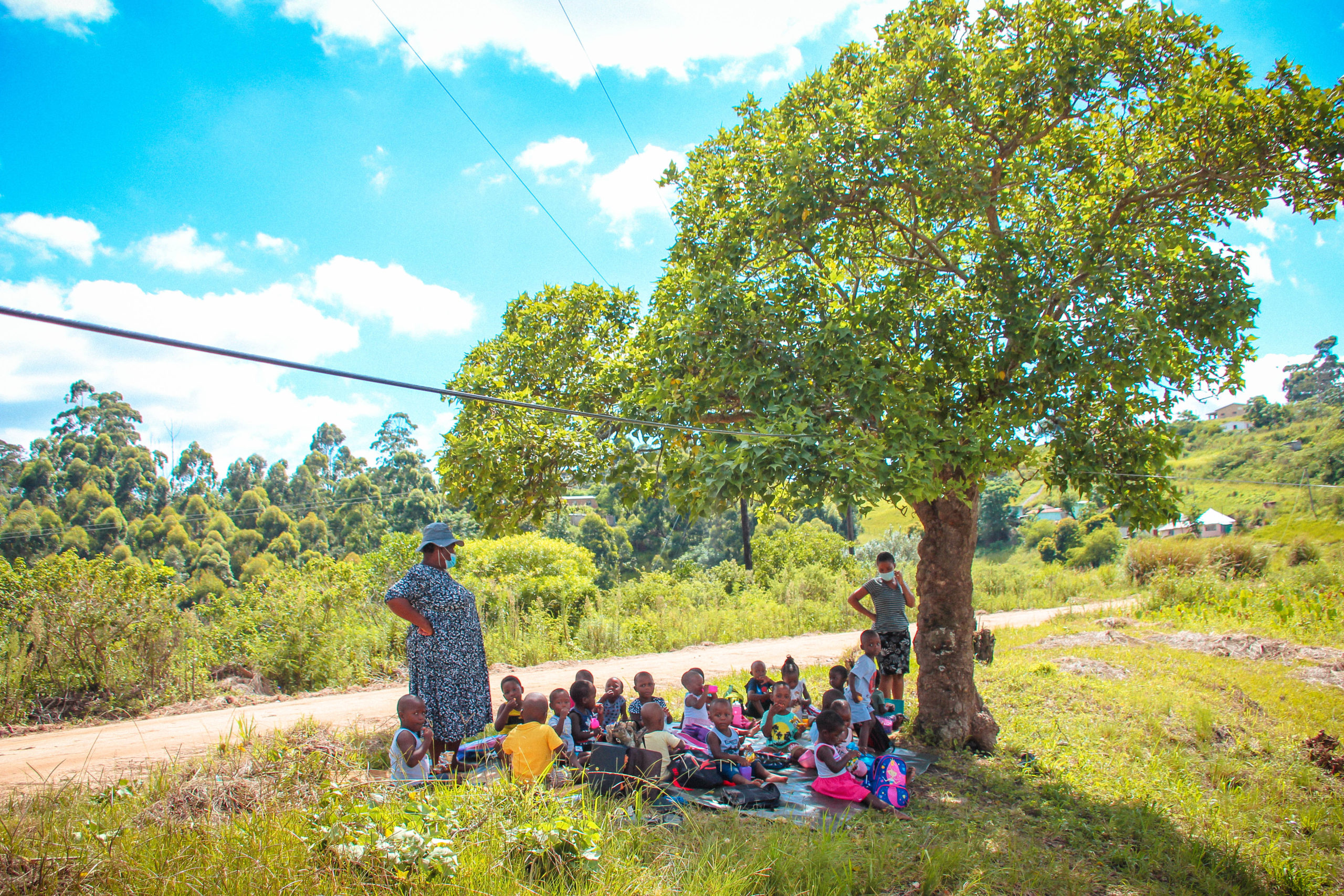Dibi is more than just a primary school, it is the centre piece of the community. Students return to Dibi during school holidays, sneaking onto the school grounds to play, knowing it is a safe place where a child can just be a child. When the school is closed, the close-knit members of the community utilise the grounds as a meeting location to discuss community issues and find solutions.
Recently, the issue on everyone’s mind has been the threat of Dibi being shut down.
With 8 grades housed in 5 classrooms supervised by 4 teachers, the 120 students at Dibi have struggled to get the quality education they deserve. A grade 3 teacher, Mrs. Ngcobo, says it is nearly impossible to teach Grades 3 and 4 in the same class when they are learning in different languages: IsiZulu and English. The community sought to bring more teachers to the school, but according to law, a grade must have at least 40 students in order to receive an educator, and therefore, Dibi should be shut down instead of helped up.
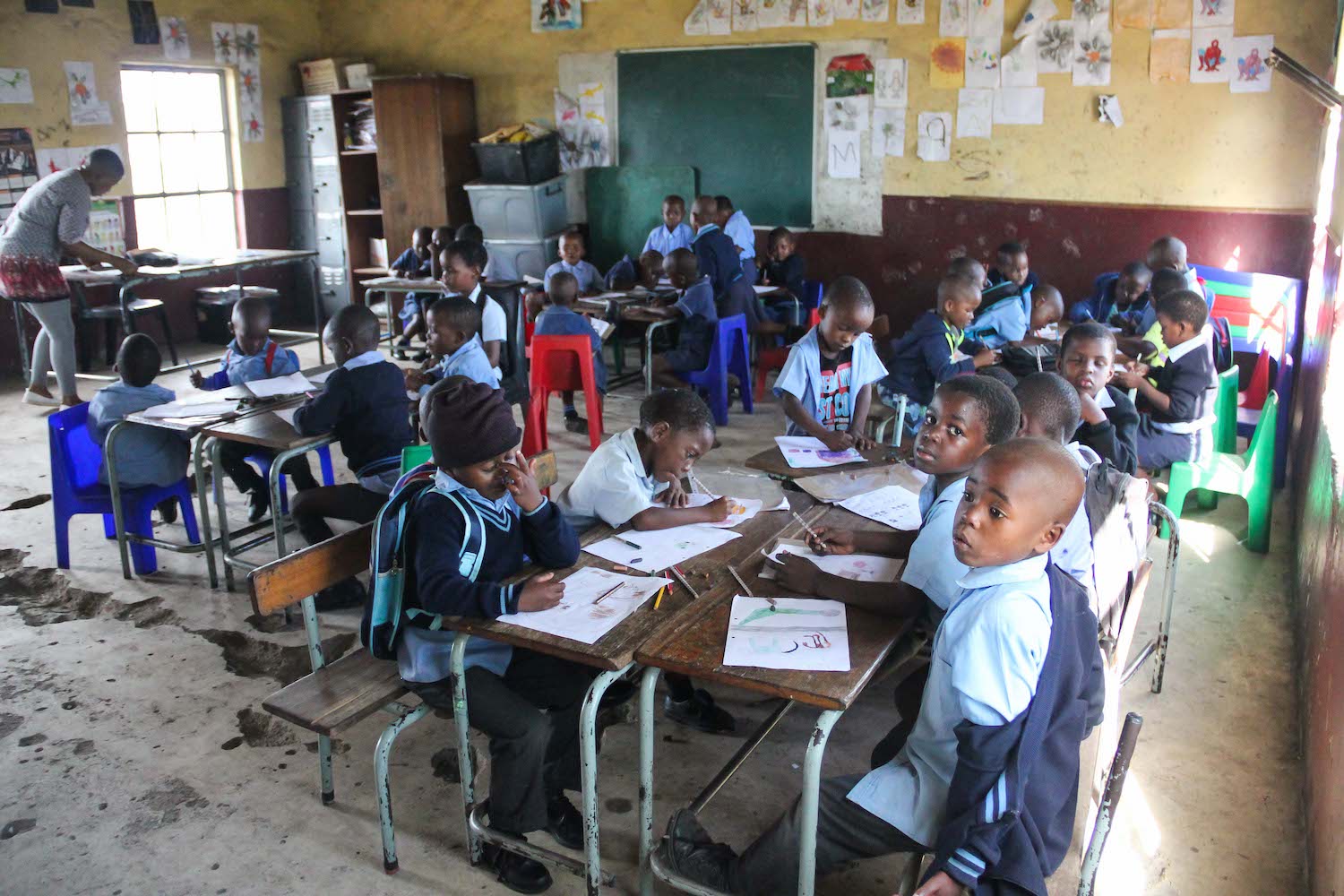
Dibi is the only primary school in its area, the next closest school is already over populated and a long distance away. For the little legs of primary schoolers, that trip to school would be insurmountable. When it rains, the roads to the other school flood, making the trip even more dangerous. Without Dibi, there is nowhere for these children to receive the education they deserve. Instead of letting the school close and take away opportunities for the 120 Dibi students, the community and Thanda decided to stand up, refusing to let Dibi be closed down. Today, the school remains open, but the fight for adequate resources continues.
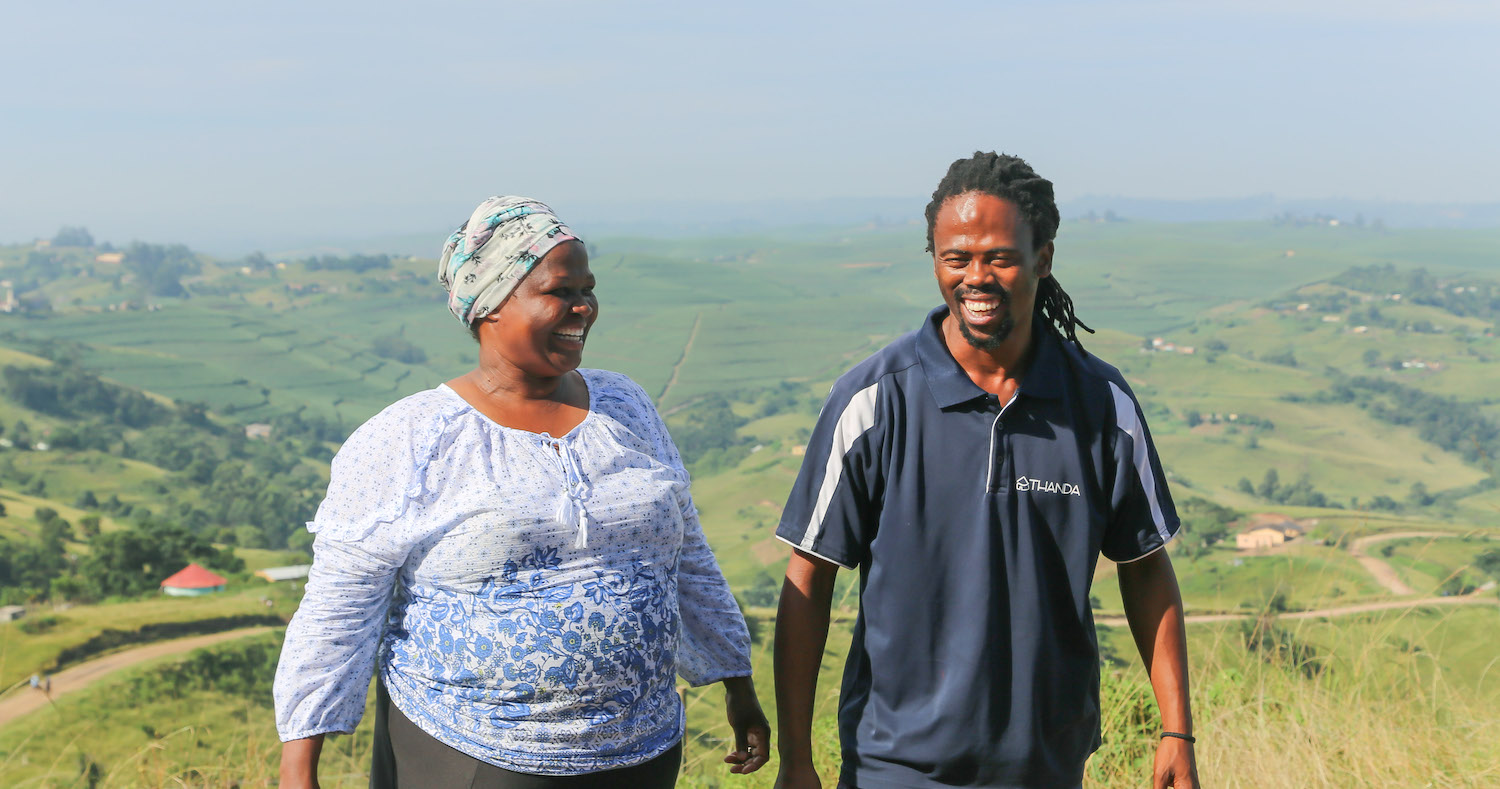 Two key players in that fight are Mrs. Ngcobo and Sandile.
Two key players in that fight are Mrs. Ngcobo and Sandile.
Mrs. Ngcobo is a Grade 3 Teacher from Mtwalume, an urban area, who was relocated to rural Dibi in 2015 where she immediately saw the challenges faced by the school, like under-staffing, under-resourcing, and under-funding. Despite the daily obstacles, Mrs. Ngcobo did not become complacent. Instead, she said, “No, I will not get used to Dibi as it is. We can make it better. The children deserve better.” Her passion and her drive was reflected in Sandile, Facilitator and Site Manager for Thanda, who has been working at Dibi for the last 5 years. Upon arriving at the school as Thanda’s representative, Sandile “fell in love with Dibi. [He] fell in love with everything about the school; the teachers, everything.” For the years of work Sandile has put in, Mrs. Ngcobo says that, “Through Sandile everything is possible. He works very, very hard. Even when we don’t have water, he organises it. And he is humble. You can approach him at any time. We love working with him because has big hopes for Dibi and the children.”
Together, Mrs. Ngcobo and Sandile worked tirelessly within the community to develop strong relationships and build a support system for the students. They went to every home in the community where they spoke with the guardians, community leaders, and students to open a line of communication focused around supporting education from all sides. The constant fear of the school’s potential closure made it difficult for children to focus, but with the students, teachers, guardians, and Thanda all on board to reinforce learning, they were able to keep the children and their education on track.
The teachers at Dibi, the surrounding community, and the Thanda Facilitators and Staff are all an essential part of keeping Dibi afloat. For example, a Grade 2 child at Dibi was not coming to school and her teacher was worried, but under school regulations, the teacher had no course of action to check on her student. The teacher spoke to Sandile who, through his role with Thanda, was able to conduct a home visit where he learned that the student was living outside of the home and occasionally sleeping near the fence of the school. Sandile, in turn, spoke to the community, and they were able to support the student so that she could return to school. That is the power of the Dibi community.
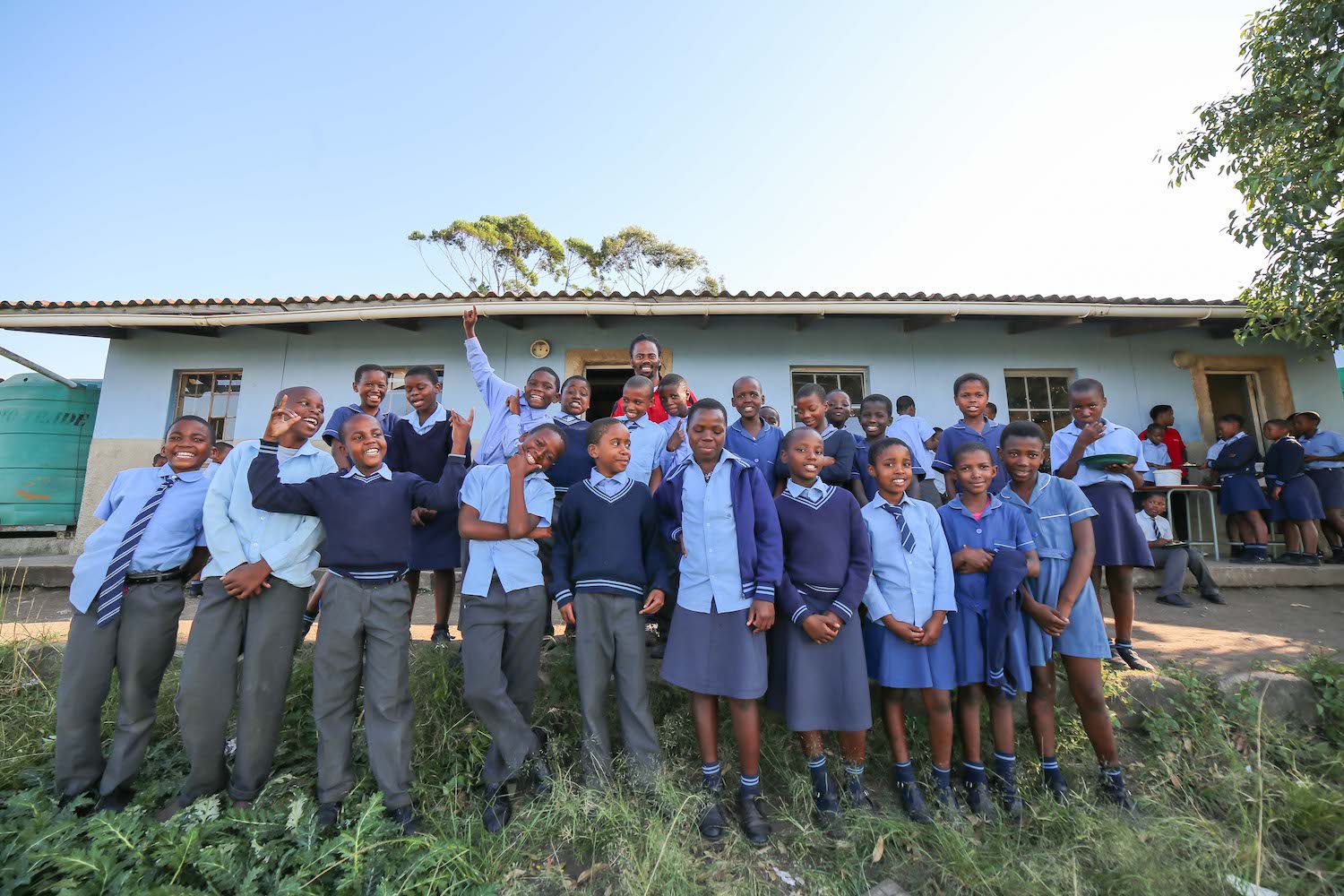
Sandile tells us that, “These children are intelligent. They are clever with their surroundings and they catch on to anything fast,” but it is not just the children’s knowledge that makes Dibi special. It’s the 4 teachers instructing 2 grade levels each, without enough resources for either grade. It’s the community fixing broken windows at the school and maintaining the grounds. It’s the students who show up every day and turn in their assignments even though they have spent the last 4 years being told by the lack of institutional support that they weren’t worth the money it took to educate them. It is Mrs. Ngcobo and Sandile’s hope that “the children and community can see the struggle of Dibi and rise from it with hope for the future.”
Dibi is more than just a primary school at the centre of the community, it is also a place of hope. With a little bit of courage and a little bit of generosity, we can make Dibi The Little School That Could.
“This time is an opportunity. This is the time we need to get right.” – Sandile Dlamini, Thanda After-school Manager and Dibi Grade 4 and 5 Facilitator.


